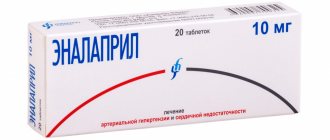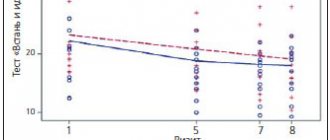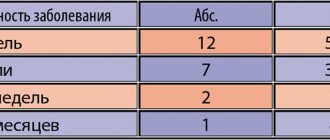Vegetative-vascular dystonia is a polysymptomatic complex consisting of various groups of manifestations. Not the least role in this is given to psycho-emotional imbalance, which can lead to functional failures of many organs. Afobazole for VSD helps to cope with these kinds of symptoms: it eliminates anxiety and feelings of restlessness, and harmonizes the state of the nervous system. With the help of Afobazole, you will significantly ease the course of the disease and be able to avoid its crises.
More about vegetative-vascular dystonia
This is a syndrome accompanied by disruption of the autonomic nervous system and functional failures of many organs. Vegetative-vascular dystonia is not a separate disease, but is considered a complex of symptoms of various etiologies.
A similar condition was first described in 1918 in America by the doctor B. Oppenheimer, who called it “neurocirculatory asthenia.” In Soviet times, the syndrome was called vegetative-vascular dystonia.
In the modern world, its manifestations are united under the name “neurocirculatory dystonia”. According to the ICD-10 classification, this is expressed by the concept of “somatoform dysfunction of the autonomic nervous system.”
Symptoms of this condition are quite varied:
- pain in the heart area, palpitations;
- breathing disorders in the form of shortness of breath or suffocation, lack of air;
- constant headaches, dizziness;
- poor sleep;
- pain in joints, muscles;
- fatigue, weakness, malaise, loss of consciousness;
- convulsive twitching of arms and legs, tremors;
- violation of thermoregulation;
- low-grade fever up to 37°;
- increased sweating, sensations of heat, dry mouth.
Of course, such manifestations of VSD can have real causes: chronic infections, intoxication, hypoxia, prenatal and postnatal lesions, osteochondrosis of the cervical spine with impaired blood supply to the brain.
But most often such symptoms become a manifestation of neuropsychic disorders: hysteria, suspiciousness, increased impressionability, nervous exhaustion.
This is also facilitated by various kinds of events that cause emotional stress and throw the nervous system out of balance. In this case, a number of symptoms are joined by others that indicate mental imbalance:
- sense of anxiety;
- obsessive thoughts and phobias;
- fear of death;
- feeling like you're going crazy;
- disbelief in the reality of what is happening.
Rather, it is nervous disorders that cause painful and unpleasant sensations in other organs. This fact is confirmed by the fact that during the examination, organic disorders in the declared organ are not recorded.
In situations where nervous tension goes beyond acceptable limits and mental state is disturbed, Afobazol will help. The drug is an anxiolytic, that is, it has
ability to eliminate anxiety. Along with it, irritability, excessive concern and groundless fears go away.
Relieving nervous tension, the drug helps to relax, reduce anxiety and improve sleep, and eliminates obsessive fears. With the normalization of the nervous system, symptoms of dysfunction of internal organs disappear. In addition, cognitive functions improve: memory and concentration.
What is obsessional neurosis, and does it need to be treated?
The main goal of treatment is to maximize the patient’s quality of life. If a disease interferes with life, then it definitely needs to be treated. Does obsessional neurosis interfere with normal life? To understand this, you need to find out what is commonly understood by this term.
Obsession is the appearance in a person of thoughts or actions that are perceived by him as something alien. A person cannot get rid of them: obsessions force him to perform certain actions, thereby becoming the cause of debilitating mental discomfort.
How does Afobazol work?
The drug is classified as a tranquilizer, but it should be noted that it stands out compared to its other counterparts.
Most members of this group act on benzodiazepine receptors. In this regard, there are some side effects of such drugs, such as: drowsiness, muscle atony, decreased concentration. Cases of addiction and withdrawal syndrome are common. But Afobazol acts very gently, bypassing all of the above complications. It has no effect on benzodiazepine receptors, acting directly on GABA-sensitive neurons and increasing their sensitivity.
GABA (gamma-aminobutyric acid) suppresses increased nervous excitability of the brain. This is the leading neurotransmitter that is responsible for inhibition processes in the central nervous system. It inhibits the action of acetylcholine and adrenaline, which cause emotional outbursts and pain. But at the same time, GABA activates the energy potential of brain tissue, stimulates blood circulation in it and the absorption of glucose and oxygen by cells, that is, it improves trophism or nutrition of the brain.
Afobazole reduces the activity of subcortical centers, such as the thalamus or hypothalamus, which are responsible for human emotions.
By taking Afobazole, you will protect your nervous system without falling into a stupor.
Contraindications to the use of Afobazol
Despite the fact that the drug is considered safe for use in most people, there are still a number of contraindications that must be followed:
- Afobazole is contraindicated in pregnant women and those who are breastfeeding.
- It is prohibited to prescribe it to children under 18 years of age, since the nervous system has not yet matured enough to take such drugs
- If a person has an intolerance to at least one of the components of the drug (both auxiliary and main), then taking it is strictly prohibited
- If a person has lactose intolerance, which is quite common today
Before you start taking Afobazole, you should consult your doctor, since there are a number of cases when, despite the absence of the contraindications listed above, the drug may be prohibited for use, or may not be able to provide the desired effect in the current life situation.
Sphere of influence
The drug has a milder and more restrained effect than other tranquilizers. And the question of whether Afobazol will help with severe mental disorders remains open. But he is able to cope with nervous overstrain during VSD.
In addition, experts recommend taking Afobazol for:
- neurasthenia;
- anxiety disorders;
- with psychosomatics;
- alcohol and tobacco withdrawal;
- premenstrual syndrome.
Sometimes people cannot even explain what triggered the emergence of such feelings. However, at the physiological level, this is explained quite simply: a surge of adrenaline entails a sharp stimulation of nervous processes and the functioning of internal organs, and since its action is systemic, the entire body is involved.
PA is mainly mental in nature. It can be caused by stress, nervous overload, emotional tension, as well as hormonal imbalances, alcohol abuse and smoking.
But it should be noted that VSD and panic attack go hand in hand. And often the latter is a manifestation of neurocirculatory dystonia during its exacerbation.
The role of Afobazole during a panic attack is to suppress the release of adrenaline and maintain it at the proper level.
Indications for use
Fabomotizol is the active ingredient of the drug
Afobazole is one of the drugs that is not addictive, and that is why it is recommended to be taken by almost all patients who:
- There are problems with sleep, the person cannot fall asleep for a long time and because of this he becomes even more irritable
- Increased feeling of anxiety, which is most often caused by severe stress and emotional tension
- There is constant anxiety in all aspects of life
- There is a constant feeling of impending disaster, and it is absolutely groundless
- It’s impossible to relax even in an environment that meets all the requirements
- Concerned about premenstrual syndrome
And if we summarize all this, then the drug is recommended for use by those patients who have a constant feeling of anxiety and fear, which may not be supported by anything.
Treatment of obsessional neurosis
We found out what this disorder is and what its danger is. Let's return to the main question: how to treat obsessive-compulsive disorder? There are several options here. It is best to combine them if possible, because this is how you can achieve the best result.
Here is what a psychiatrist has in his “arsenal” for patients with obsessional neurosis:
- antidepressants of various types and generations; - means that normalize mood (normalizers); - psychotherapy.
Now let's look at each of these points in more detail.
Antidepressants
Antidepressants are a group of drugs that affect certain active substances in the brain. By changing the balance of these active substances, and acting differently on the same substance, antidepressants change the speed and orientation of many mental processes, mood and general condition.
In the treatment of obsessional neurosis, antidepressants occupy a central place, because only they can return a person to the possibility of normal communication and full socialization. Proper use of antidepressants guarantees long-term remission without relapse. Sometimes a course of treatment (combined, of course) is enough for a person to get rid of neurosis for life.
In recent years, there have been quite a lot of antidepressants: fundamentally new substances have been synthesized that have fewer side effects, are safer and more effective. Old drugs are gradually leaving the practice of psychiatrists (although they remain in the practice of doctors of other specialties). It is unlikely that a psychiatrist will prescribe you amitriptyline or a similar drug: much more effective substances are now available, the use of which gives lasting, good results without the risk of repeated exacerbations or unsuccessful treatment.
The most popular are antidepressants that affect serotonin receptors. These medications do not cause drug dependence and have relatively few contraindications. One significant disadvantage of this group of drugs: in the first week of treatment, almost all patients complain of severe, debilitating nausea.
Normotimics
Mood stabilizers are drugs used to correct mood: they ensure its stability, stability and constancy. Interestingly, there is not a single drug that belongs specifically to this group and was created only to normalize mood. All such drugs (even the ancient drug made from lithium salts) initially had a different purpose, and the normothimic effect is a kind of pleasant bonus.
If a person suffers from obsessive neurosis, his treatment will necessarily include drugs that normalize mood. Like antidepressants, mood stabilizers affect the main links in the pathogenesis of obsessional neurosis, and their combination is considered the most effective treatment method.
Carbamazepine and its derivatives are most often used. This drug is also used to treat epilepsy (and its various types), but in addition to the anticonvulsant effect, carbamazepine also has a pronounced normothimic effect. By the way, carbamazepine is a substance that was synthesized from a strong antidepressant. To some extent, this explains this effect and high effectiveness in the treatment of obsessive thoughts and, in particular, obsessive movements (compulsions).
Psychotherapy
One of the most important aspects of treating obsessions is psychotherapy. Perhaps you notice fear or obsessive thoughts, or maybe you observe obsessive movements in your child, contact a psychiatrist. In this situation, individual psychotherapy is indicated.
The most common direction is behavioral psychotherapy, based on neurolinguistic programming or “body” orientation. Indeed, in a sense, obsessions are behavioral disorders, so treatment should be aimed at it. Behavioral psychotherapy can be combined with suggestive psychotherapy (it is rarely used as a single treatment method).
Suggestion is what is called “suggestion.” This technique is carried out, as a rule, after preliminary preparation: the person is immersed in a state of medicated or natural sleep, hypnosis, etc. Sometimes suggestion is practiced with a awake person, who must, of course, be calm and relaxed. This state is most easily achieved with sedatives, although experienced psychotherapists can do without them.
Afobazol - instructions for use
Where can I buy?
Registration number : LP-006555 Trade name of the drug: Afobazol® Retard INN or group name: fabomotizol Dosage form: extended-release film-coated tablets
the only* over-the-counter anti-anxiety drug that is used once a day *according to GRLS data as of 04/01/2021
Composition per tablet:
Active substance:
fabomotizole (fabomotizole dihydrochloride) – 30.0 mg.
Excipients:
Kollidon® SR [polyvinyl acetate, povidone, sodium lauryl sulfate, silicon dioxide] - 120.0 mg, hypromellose - 25.0 mg, lactose - 23.0 mg, magnesium stearate - 2.0 mg.
Shell composition:
Opadry II 85 F18422 white [polyvinyl alcohol, partially hydrolyzed, titanium dioxide, macrogol 4000, talc] - 6.0 mg.
Description: round, biconvex, almost white film-coated tablets. On a cross section, the kernel is almost white or white with a yellowish-brownish tint.
Pharmacotherapeutic group: anxiolytic agent (tranquilizer).
ATX code: N05BX.
Pharmacodynamics.
Afobazol® Retard is a selective non-benzodiazepine anxiolytic.
Acting on sigma-1 receptors in nerve cells of the brain, Afobazol® Retard stabilizes GABA/benzodiazepine receptors and restores their sensitivity to endogenous inhibitory mediators. Afobazol® Retard also increases the bioenergetic potential of neurons and has a neuroprotective effect: it restores and protects nerve cells.
The effect of the drug is realized primarily as a combination of anxiolytic (anti-anxiety) and mild stimulating (activating) effects.
Afobazole® Retard reduces or eliminates feelings of anxiety (concern, bad feelings, fears), irritability, tension (fearfulness, tearfulness, anxiety, inability to relax, insomnia, fear), depressive mood, somatic manifestations of anxiety (muscular, sensory, cardiovascular , respiratory, gastrointestinal symptoms), autonomic disorders (dry mouth, sweating, dizziness), cognitive disorders (difficulty concentrating, weakened memory), incl. arising from stress disorders (adaptation disorders). The use of the drug is especially indicated in persons with predominantly asthenic personality traits in the form of anxious suspiciousness, uncertainty, increased vulnerability and emotional lability, and a tendency to emotional stress reactions.
Afobazole® Retard does not cause muscle weakness, drowsiness and does not have a negative effect on concentration and memory. When using it, addiction does not form, drug dependence does not develop, and “withdrawal” syndrome does not develop.
Pharmacokinetics.
After oral administration, Afobazol® Retard is well and quickly absorbed from the gastrointestinal tract. Food intake does not affect the absorption of the drug and the pharmacokinetic parameters.
The maximum concentration of the drug in plasma (Cmax) after a single dose is 47.740 + 43.252 ng/ml, after multiple doses - 27.668 + 13.770 ng/ml; time to reach maximum concentration (Tmax) – 2.1+1.1 and 2.6+1.0 hours after single and multiple doses, respectively.
Metabolism: Afobazole® Retard undergoes a “first pass effect” through the liver; the main directions of metabolism are hydroxylation at the aromatic ring of the benzimidazole ring and oxidation at the morpholine fragment.
Afobazol® Retard is intensively distributed throughout well-vascularized organs; it is characterized by rapid transfer from the central pool (blood plasma) to the peripheral (highly vascularized organs and tissues).
The half-life of Afobazol® Retard when taken orally is 8.41+5.01 hours after a single dose and 6.05+3.54 hours after multiple doses. The drug is excreted mainly in the form of metabolites and partially unchanged by the kidneys and through the intestines.
Indications for use.
Afobazol® Retard is used in adults for anxiety conditions: generalized anxiety disorders, neurasthenia, adaptation disorders, in patients with various somatic diseases (bronchial asthma, irritable bowel syndrome, systemic lupus erythematosus, coronary heart disease, hypertension, arrhythmias), dermatological, oncological and other diseases; in the treatment of sleep disorders associated with anxiety.
Contraindications.
- Hypersensitivity to fabomotizole and/or any excipient in the drug.
- Galactose intolerance, lactase deficiency, glucose-galactose malabsorption.
- Pregnancy, breastfeeding period.
- Children under 18 years of age.
If you have one of the diseases listed above, you should consult your doctor before using the drug.
Use during pregnancy and breastfeeding.
The use of Afobazol® Retard is contraindicated during pregnancy.
If it is necessary to use the drug during lactation, breastfeeding should be discontinued.
Before using Afobazol® Retard, if you are pregnant or think you might be pregnant, or are planning a pregnancy, you should consult your doctor.
Method of administration and dose.
Used internally.
1 tablet 1 time per day, in the morning, regardless of meals.
The duration of the course of use of the drug is 2–4 weeks.
If there is no improvement after treatment, or symptoms worsen, or new symptoms appear, you should consult your doctor.
Use the drug only according to the indications, method of administration and in the doses indicated in the instructions.
Side effects.
Undesirable effects that may develop during treatment with Afobazol® Retard are classified according to the following frequency of occurrence:
very often (> 1/10), often (from > 1/100 to < 1/10), infrequently (from > 1/1,000 to < 1/100), rarely (from > 1/10,000 to < 1/10) 1,000), very rare (< 1/10,000), frequency unknown (cannot be determined from available data).
From the immune system: frequency unknown - allergic reactions.
From the nervous system: rarely - headache, which usually goes away on its own and does not require discontinuation of the drug.
If you experience the side effects listed in the instructions, or they get worse, or you notice any other side effects not listed in the instructions, tell your doctor.
—>
Overdose.
Symptoms With significant overdose and intoxication, the development of sedation and increased drowsiness without manifestations of muscle relaxation is possible. Treatment. As an emergency solution, caffeine 20% solution in 1.0 ml ampoules is used 2-3 times a day subcutaneously.
If symptoms of overdose appear, stop taking the drug and consult a doctor immediately.
Interaction with other drugs.
Afobazole® Retard does not interact with ethanol and does not affect the hypnotic effect of thiopental. Enhances the anticonvulsant effect of carbamazepine. Causes an increase in the anxiolytic effect of diazepam.
If you are using the above or other medications (including over-the-counter medications), consult your doctor before using Afobazol® Retard.
Influence on the ability to drive vehicles and machinery.
The drug does not have a negative effect on driving vehicles and performing potentially hazardous activities that require increased concentration and speed of psychomotor reactions.
Release form.
Extended-release film-coated tablets, 30 mg.
20 tablets each in a blister pack made of polyvinyl chloride film and printed varnished aluminum foil.
1 blister pack with instructions for use is placed in a cardboard pack.
Storage conditions.
At a temperature not higher than 25 ºС. Keep out of the reach of children.
Best before date.
2 years. Do not use after the expiration date stated on the packaging.
Vacation conditions.
Over the counter.
Marketing authorization holder/organization receiving consumer complaints
OTCPharm JSC, Russia, 123112, Moscow, st. Testovskaya, 10. Tel., fax. www.otcpharm.ru


